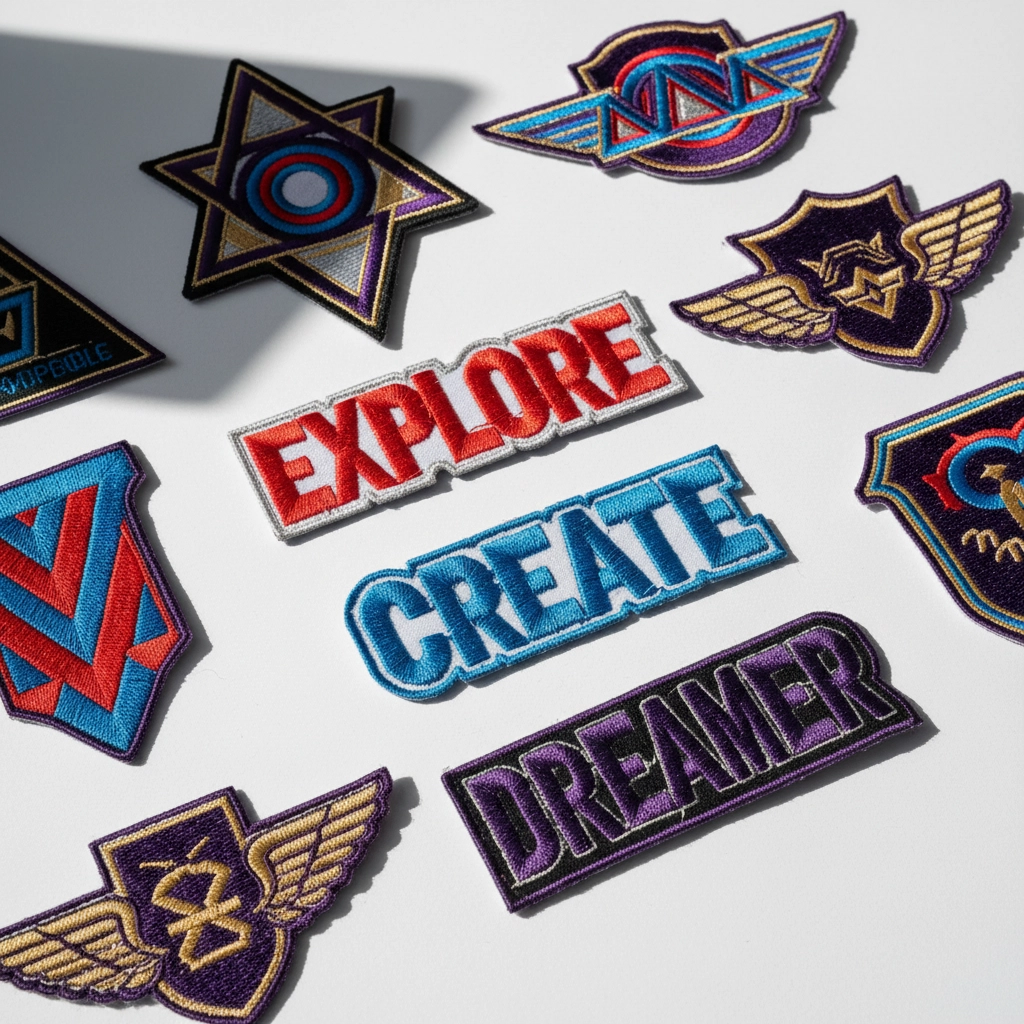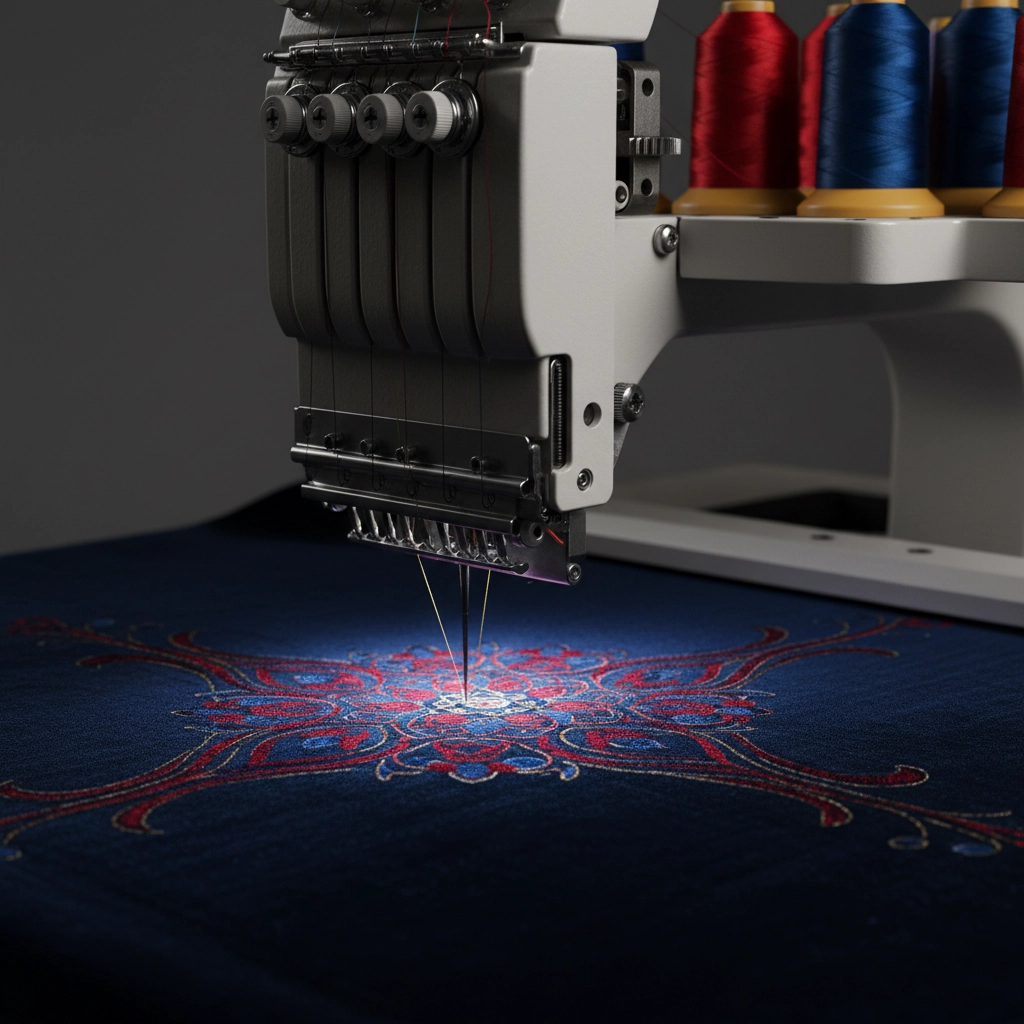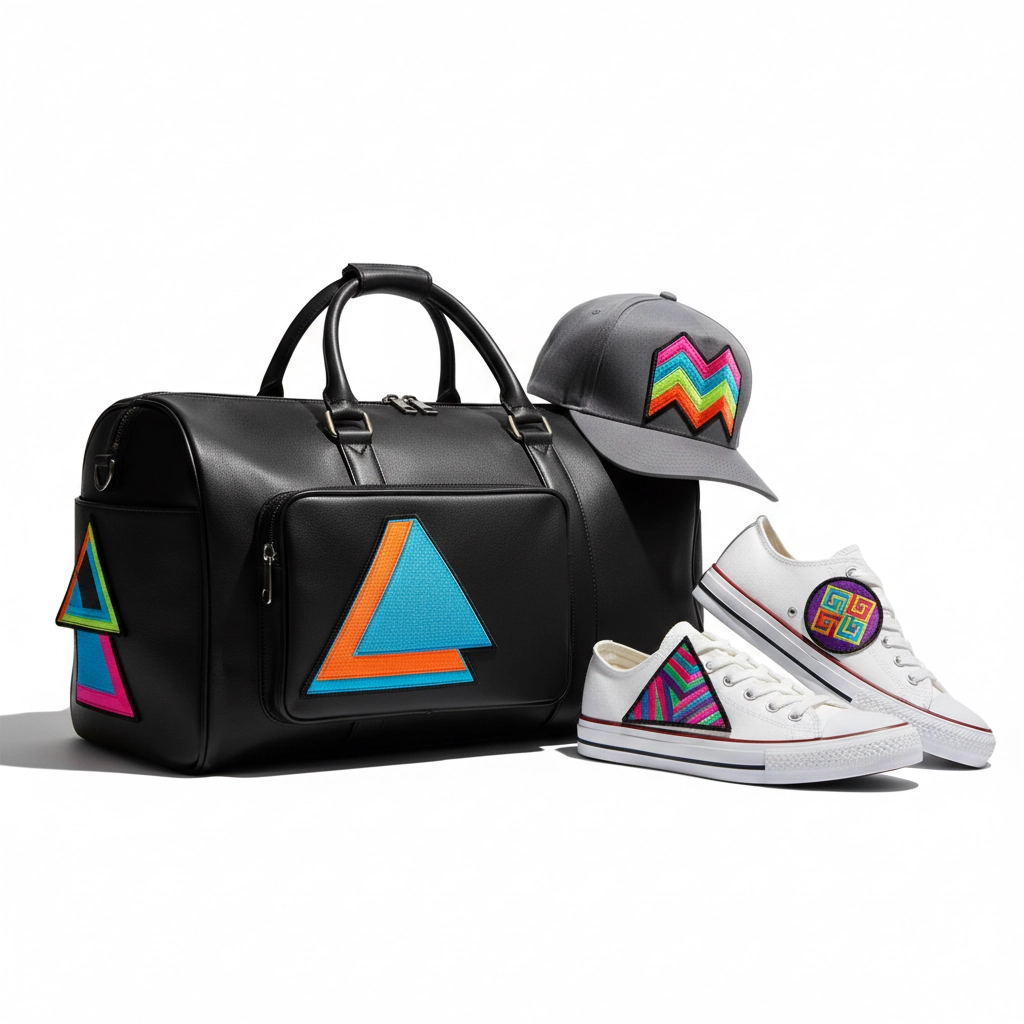Are Custom Patches Dead? Do People Still Use Embroidery Services for Branding in 2025?
- Janet Emma
- Oct 8
- 4 min read
Short answer: No way. Custom patches are experiencing their biggest comeback since the '90s, and embroidery services are busier than ever. In 2025, patches aren't just surviving – they're thriving across industries from streetwear to corporate branding.
The Great Patch Revival of 2025
Custom patches have officially shed their "outdated" reputation. What started as nostalgia has evolved into a full-blown trend that's reshaping how brands approach personalization and marketing.
The numbers tell the story. Embroidery services report unprecedented demand for custom patches across multiple sectors. Streetwear brands lead the charge, but corporate clients aren't far behind. The appeal? Patches offer something digital printing can't: texture, durability, and that premium handcrafted feel.

Fashion houses now incorporate patches as statement pieces. Tech companies use them for employee swag. Non-profits create them for fundraising campaigns. The applications keep expanding.
Where Embroidery Services Shine in 2025
Corporate branding dominates embroidery service requests. Companies discovered that embroidered uniforms and patches create stronger brand recognition than standard printed apparel. The raised texture catches light differently. Colors stay vibrant longer. Quality becomes immediately apparent.
Popular corporate applications:
Employee uniforms with embroidered logos
Event merchandise and conference swag
Customer appreciation gifts
Team building accessories
Professional networking items
Sports organizations remain heavy users of embroidery services. Team patches, player names, tournament commemoratives – the demand never stops. Schools order thousands of custom patches for clubs, athletics, and special events.
Military and first responder markets continue steady growth. Custom patches for departments, units, and special occasions require the durability only quality embroidery provides.
Technology Transforms Traditional Embroidery
Digital embroidery changed everything. Modern machines create complex designs with precision that rivals hand-stitching. Computerized systems reduce production time while improving consistency.
AI-assisted design tools streamline the creative process. Customers upload logos, select thread colors, and preview finished products before production begins. The technology makes custom patches accessible to smaller businesses and individual customers.

Automation benefits:
Faster turnaround times
Lower minimum orders
More detailed designs
Consistent quality across large runs
Reduced labor costs
2025 Design Trends Drive Demand
Vintage revival patches top the trending list. Retro fonts, classic color combinations, and throwback imagery appeal to multiple demographics. Brands tap into nostalgia while maintaining modern relevance.
Minimalist designs attract customers seeking clean, professional looks. Simple logos, single-color threads, and geometric shapes create sophisticated patches suitable for business environments.
Bold geometric patterns replace traditional floral motifs. Abstract designs, sharp angles, and striking color contrasts make patches stand out on dark or busy backgrounds.
3D embroidery techniques add dimension through varied stitch heights and thread textures. Raised elements create visual interest and tactile appeal that flat printing cannot match.
Color trends split between dramatic statements and subtle elegance. Deep reds, electric blues, and vibrant oranges compete with soft pastels and earth tones for customer attention.
Sustainability Drives Embroidery Growth
Environmental concerns boost demand for sustainable embroidery services. Organic cotton threads, recycled polyester backing materials, and eco-friendly adhesives appeal to environmentally conscious customers.
Upcycling projects incorporate patches into existing garments. Instead of discarding worn clothing, customers add custom embroidery to extend product life. The practice reduces waste while creating unique pieces.

Green embroidery options:
Organic thread materials
Recycled backing fabrics
Water-based adhesives
Local sourcing to reduce shipping
Minimal packaging approaches
Beyond Clothing Applications
Custom patches expanded beyond traditional apparel. Bags, shoes, hats, and accessories now feature embroidered elements. Pet accessories represent a growing niche market with custom name patches and breed identifiers.
Home décor applications include embroidered pillows, wall hangings, and table linens. Personal gifts featuring names, dates, or special messages maintain steady demand.
Automotive enthusiasts add patches to seat covers, floor mats, and gear bags. Motorcycle clubs continue their long tradition of custom patches for jackets and vests.
Business Opportunities in Embroidery Services
Small businesses discover profitable niches within embroidery services. Wedding patch favors, baby announcement items, and memorial pieces serve specialized markets with higher profit margins.
Online platforms connect embroidery services with customers worldwide. Local shops compete by offering faster delivery, personal consultations, and specialized expertise.
Profitable market segments:
Wedding and event merchandise
Youth sports teams and leagues
Local business uniforms
Hobby and collector communities
Personal milestone commemoratives

Quality Standards Shape Customer Expectations
Modern customers expect professional results from embroidery services. Thread density, color matching, and durability influence buying decisions more than price alone.
Quality embroidery resists fading, fraying, and distortion through multiple wash cycles. Professional services invest in premium threads, precise equipment calibration, and skilled operators to meet these standards.
Customer reviews focus on craftsmanship details. Crooked lettering, inconsistent spacing, or poor thread tension damage business reputations quickly in online marketplaces.
Pricing and Market Competition
Custom patches compete primarily on quality rather than price. Customers pay premium rates for superior materials, detailed work, and reliable delivery schedules.
Budget options exist, but quality differences become obvious quickly. Professional embroidery services differentiate through superior craftsmanship, customer service, and design expertise.
Volume discounts encourage larger orders, but minimum quantity requirements vary significantly between providers. Some specialize in single-item orders while others focus on bulk production.
Future Growth Predictions
Industry analysts predict continued growth for embroidery services through 2025 and beyond. Personalization trends show no signs of slowing. Corporate spending on branded merchandise remains strong.
Technological improvements will further reduce costs while improving capabilities. New thread materials, faster machines, and advanced software tools expand creative possibilities.
International markets offer expansion opportunities for established embroidery services. E-commerce platforms simplify global shipping and payment processing.

Getting Started with Custom Patches
Businesses considering custom patches should evaluate their specific needs first. Corporate branding requires different approaches than personal projects or retail merchandise.
Professional embroidery services provide design consultations, material recommendations, and production timelines. Quality providers offer samples, proofs, and revision opportunities before final production.
Budget planning should include setup fees, per-piece costs, and shipping expenses. Rush orders typically cost more but may be necessary for time-sensitive projects.
The answer is clear: custom patches aren't dead – they're more alive than ever in 2025. Modern embroidery services combine traditional craftsmanship with cutting-edge technology to meet growing demand across multiple industries. Whether for corporate branding, personal expression, or retail merchandise, custom patches offer unique value that digital alternatives cannot match.
Quality embroidery creates lasting impressions, builds brand recognition, and provides tactile experiences that customers remember. As personalization trends continue growing, embroidery services are positioned for sustained success in the years ahead.

Comments